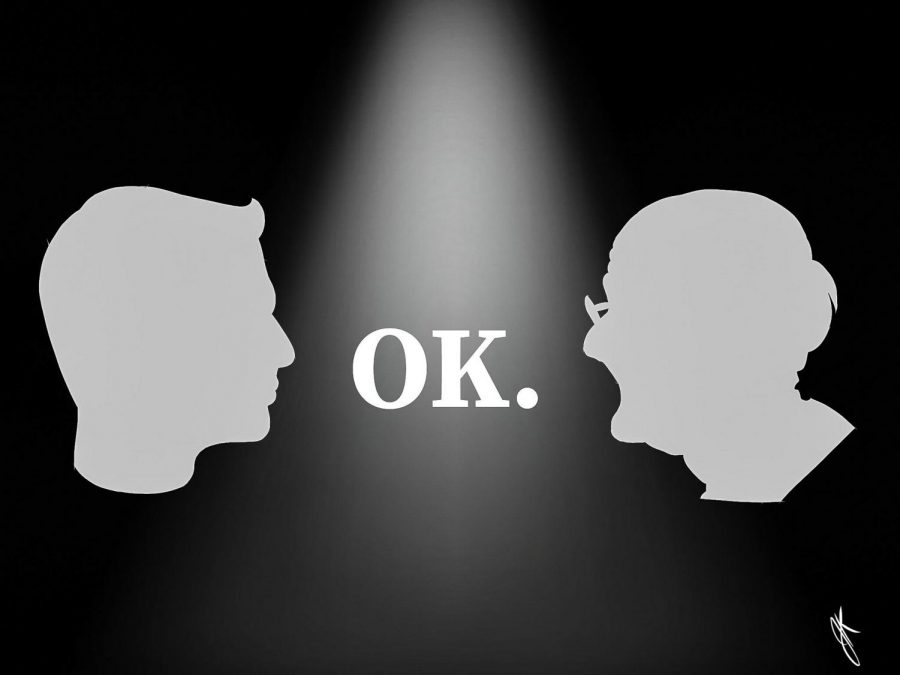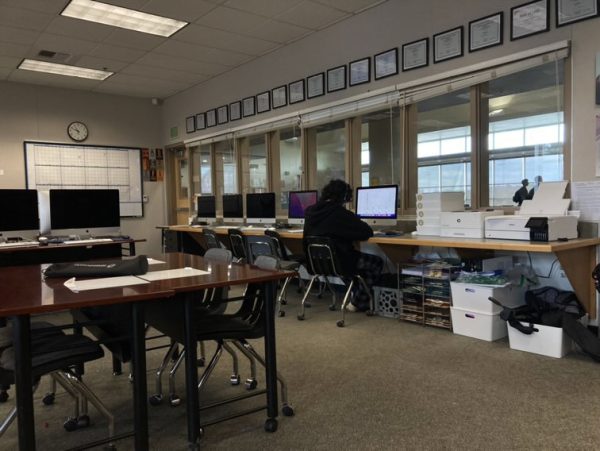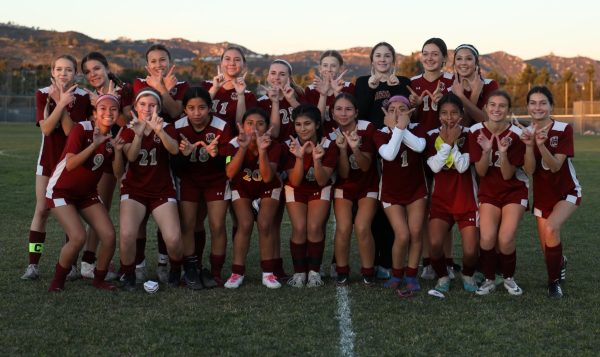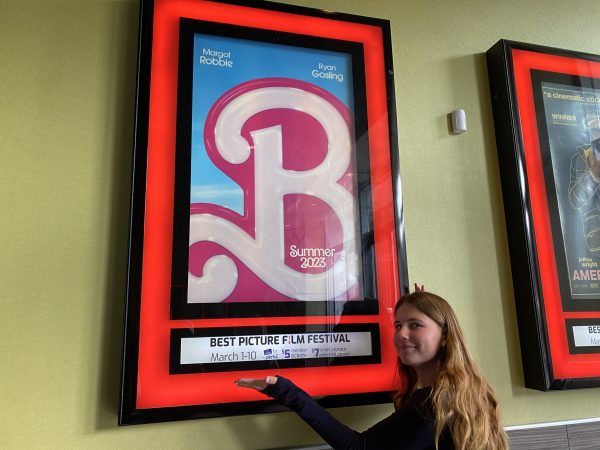Boomers can’t handle the boom
Generations have become increasingly polarized with the spark of social media trends.
Photo by Joseph Kamandy
Young generations construct the term “Ok boomer” as Baby Boomers struggle to keep up with new customs and trends.
December 23, 2019
Young generations and the internet often go hand-in-hand when devising new ways to make someone feel bad about themselves. Recently, the term “Ok Boomer” has hit a trend with Generation Z. Some speculate that it’s a sign of insubordination; a protest against older generations. But fundamentally, “Ok boomer” is just another meme.
As new generations come in and as time passes, new customs come into play. But many Boomers haven’t adapted to these new customs, leading to ‘Ok boomer’, which is a simple way to convey that they are out of touch with modern society and technology,
— George Sanders (11)
“Ok boomer” is a reply that dismisses internet posts that don’t reflect contemporary values, especially those that teenagers take somewhat personally. Internet content often antagonize the usage of technology or downplay issues like climate change and childhood trauma are the targets of the phrase, because they coincidentally fit the stereotypical ideology of Baby Boomers. “Ok boomer” has been adopted by much of Generation Z and is widely spread, now used as a more general reply to ridiculous or idiotic claims.
“As new generations come in and as time passes, new customs come into play. But many Boomers haven’t adapted to these new customs, leading to ‘Ok boomer’, which is a simple way to convey that they are out of touch with modern society and technology,” George Sanders (11) said.
Some argue that using “Ok boomer” encourages social tensions between older and younger generations. A New York Times article describes the term as a measure of how openly upset teenagers are about the circumstances their Baby Boomer predecessors left them in. And to some extent, this is true; the term is a reaction to the condescending attitude older people take on teenage culture.
“I think the term ‘Ok boomer’ came from millennials getting mad at boomers for getting mad at them. So someone decided to take the term baby boomer and shorten it and make it derogatory. So now ‘Ok boomer’ is sort of a tool to use to get through it when a boomer is ranting and raving about how bad kids are these days,” Garrett Watson (10) said.
But ultimately, people are perceiving the term to be more hostile than it actually is. While “Ok boomer” was created as a reaction, it is still a product of meme culture. Many teens also use the term with other teens, sometimes coining a different variant of “Ok boomer”; “Ok zoomer”, meant to point out how even Generation Z-ers can be as absurd as the stereotypical Baby Boomer.
“I would use the term ‘Ok boomer’ as a joke. To me, it doesn’t really mean the breakdown of relations between generations and I find it stupid that many millennial writers are portraying it as a rallying cry by Gen Z against Baby Boomers. It’s a joke, not a real movement,” Jose Montiel (12) said.
The humor of Generation Z-ers and Millennials is often very confusing to understand for those that already don’t understand it. Teenagers aren’t blind to what is happening around the world, and some string of events are so illogical, it becomes humorous. Memes are one medium that they use to express their views in a ridiculing way, reflecting the illogicality of the situation they’re pointing out. Although the term is shaped as an insult, at its core, it is another small nod to how nonsensical the world can be.
















